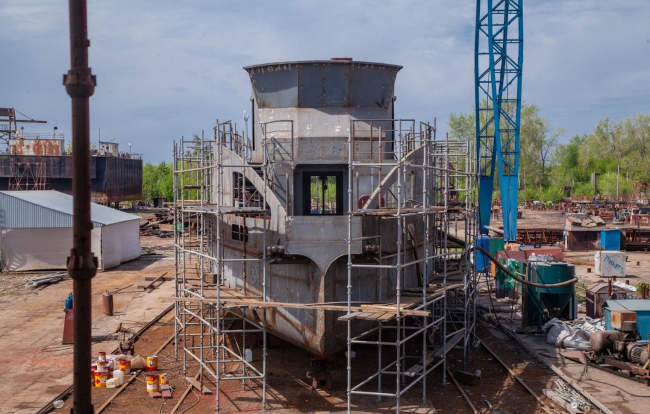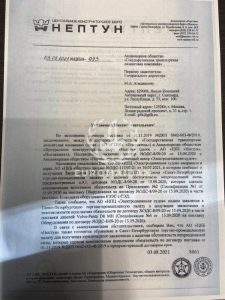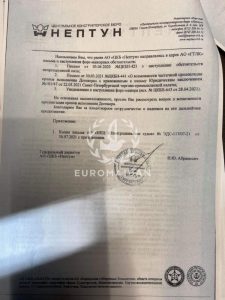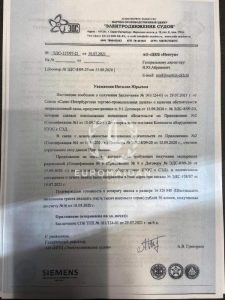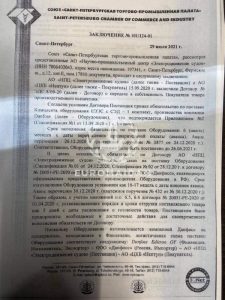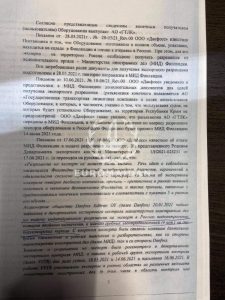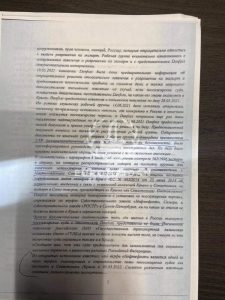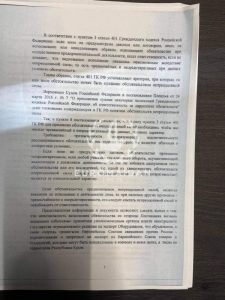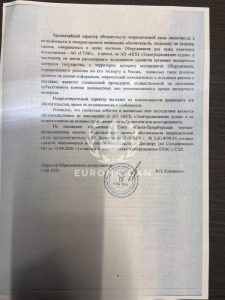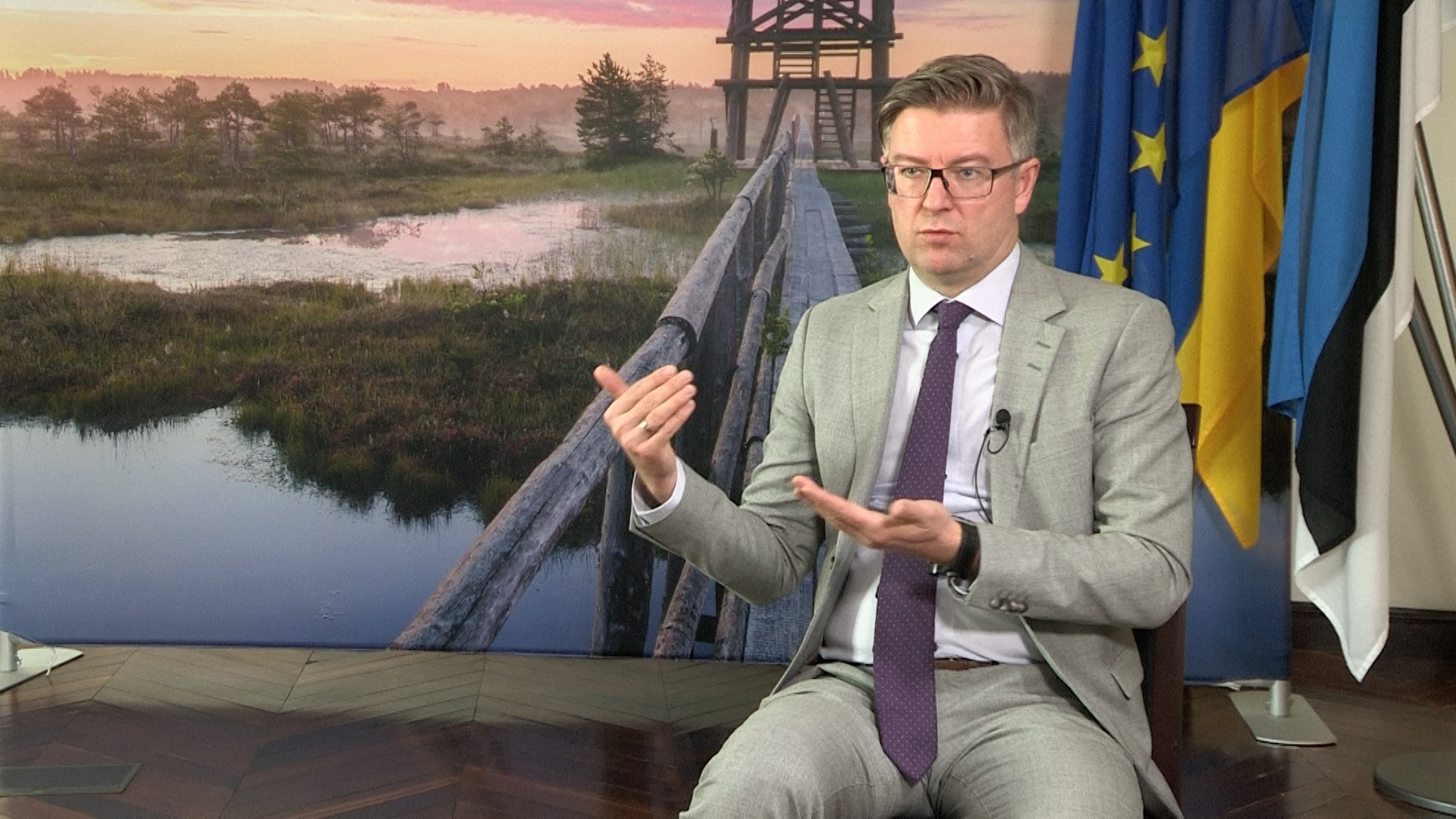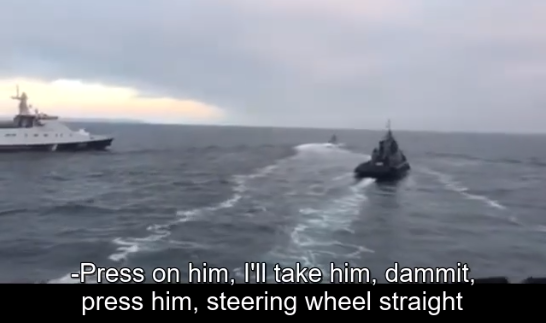The country is Finland, which recently said "ei" to the plans of its company Danfoss to export engines to St. Petersburg's "JSC Electric propulsion of ships Research and Production Center" ("Center"). The country's Foreign Ministry convened a working group that did its independent research and concluded it's all too likely that Danfoss' Russian partners' assurances that the engines will not set foot in Crimea are baloney.
This stands in stark contrast to other EU states like Germany, where obvious proof that Siemens violated sanctions did not convince prosecutors to start an investigation, or The Netherlands, where any type of export controls was seemingly absent when Dutch companies helped Vladimir Putin pull off his bridge megaproject. Hurrah for Finland.
Finland's decision became known from the conclusion of St. Petersburg's Chamber of Commerce and Industry that the Center forwarded to the head of the Neptune Central Design Bureau ("Neptune"), explaining why they cannot fulfil the order #ЭДС-8/09-20 from 15.09.2020 in time.
Euromaidan Press has received a copy of these documents:
Ukraine's Permanent Representative to Crimea Anton Korynevych briefly mentioned the incident on 5 October 2021.
The conclusion reveals that the Finnish Foreign Ministry refused to issue a license for the export of four Danfoss engines for two passenger ferries, explaining that the equipment can be installed on ships likely to be used in occupied Crimea.
The equipment was produced by Danfoss Editron OY (Finland), and imported by Danfoss Ltd. (Russia), then sold to the Center and through it to Neptune, which, in its turn, was fulfulling an order of the State transport leasing company, the largest one in Russia.
However, the Finnish Foreign Ministry took issue with the explanation and denied the export licence on 17 June (decision of the Finnish Foreign Ministry's Department of export control #UH2021-025231). The explanation given by the Ministry is quoted in the conclusion of the Chamber of Commerce.
Particularly, it notes that the issue of the export of the engines was reviewed in the Ministry's Department of Export Control and the Working Group of Export Control. Experts from different departments of the Ministry took part in the latter, including those specializing in arms control, human rights, sanctions, and Russia, which gave a negative conclusion regarding the issuance of the permit.
The Department and Working Group asked Danfoss to provide proof that the engines will not be used in Crimea. This proof was not deemed sufficient, as Danfoss did not provide clear documentary evidence as to where exactly in Russia the ferries will be used, and the explanations of the State Leasing Company did not provide clarity on the issue, either. Moreover, one of the plants in Russia where the two ferries are being built (the Nefteflot shipyard in Samara), is one of three plants involved in the construction of five passenger ships for delivery to occupied Sevastopol on 5.05.2022.
The Ministry noted that, according to different newspaper articles, the details of the project are classified. All this, it concluded, creates too much risk that in exporting these engines, Finland will end up violating Council Regulation #692/2014 of 23 June 2014.
This all amounts to force majeur, the Center and Neptune claimed while petitioning to prolong the terms of fulfillment of their contracts.
It also appears that Neptune ran into problems while importing US-produced Volvo-Penta D8 MH diesel engines. This is mentioned in Neptune's letter to the State transport leasing company explaining why the contracts cannot be fulfilled in time, although the details are absent in the conclusion of the Chamber of Commerce.
Trending Now
- They reveal that, contrary to many EU countries' lax approach to Crimea sanctions, at least one member of the Union takes its foreign policy obligations seriously. To its praise, Finland has set up the proper state institutions to control whether sanctioned goods will end up in occupied Crimea instead of relying on companies' goodwill. This "goodwill" has proven to be an unreliable safeguard, as proven by Siemens' shipping of gas turbines to power stations in occupied Crimea, where any trace of state control or prosecution was absent, and the contribution of Dutch companies to building the Crimea bridge, where state control over experts was woefully inadequate, yet at least state prosecution post factum seems to be proper.
- They demonstrate the due diligence that Finland has undertaken to study the real possibility of banned goods ending up in Crimea. Unlike the scandalous Siemens gas turbines case, where the prosecutor's office decided to not even launch criminal proceedings because the company presented a contract where their Russian partners simply stated that Crimea is not the end destination of the engines, Finland's Foreign Ministry examined all facts and made their own conclusion about the plausibility of the proof offered by Russian companies. As Dutch lawyer Heleen over de Linden notes, EU companies have gotten very experienced in drafting such contracts with "get-out clauses" allowing them to evade responsibility for violating sanctions. Finland's Foreign Ministry was smarter than the smart-ass companies.
- The fact that Finland's Foreign Ministry did their own investigation involving relevant specialists means this example is to be celebrated and replicated among other EU member states. This is especially relevant because the EU is looking into overhauling and upgrading its sanctions policy, which involves assessing what works and what does not, as well as sharing best practices. Finland's example is a vivid demonstration of what a serious attitude to adhering to the sanctions regime against Russia, and it rebuking the expansionist ambitions of a wannabe dictator who has turned the land he occupied into a peninsula of fear, look like.
Related:
- Some call the EU sanctions regime a “paper tiger,” but that will change soon — law professor
- Ukraine prepares sanctions against Austrian firm over flagship opera house in occupied Crimea
- It is high time for Ukraine to create a domestic sanctions policy
- How German companies violated sanctions to bring Dutch sea platform to luxury marina in Crimea
- Grundfos says it took all precautions to prevent Crimea sanctions breach, and this raises questions
- German Ambassador Anka Feldhusen: Crimean Platform good for getting more countries to support Ukraine & sanctions
- Siemens’ Crimea sanctions break – a case of criminal negligence | #SiemensGate
- How Siemens chose to ignore the obvious. An investigation into the Crimean sanctions break
- Scandal as Dutch companies help build bridge to occupied Crimea, violating sanctions

